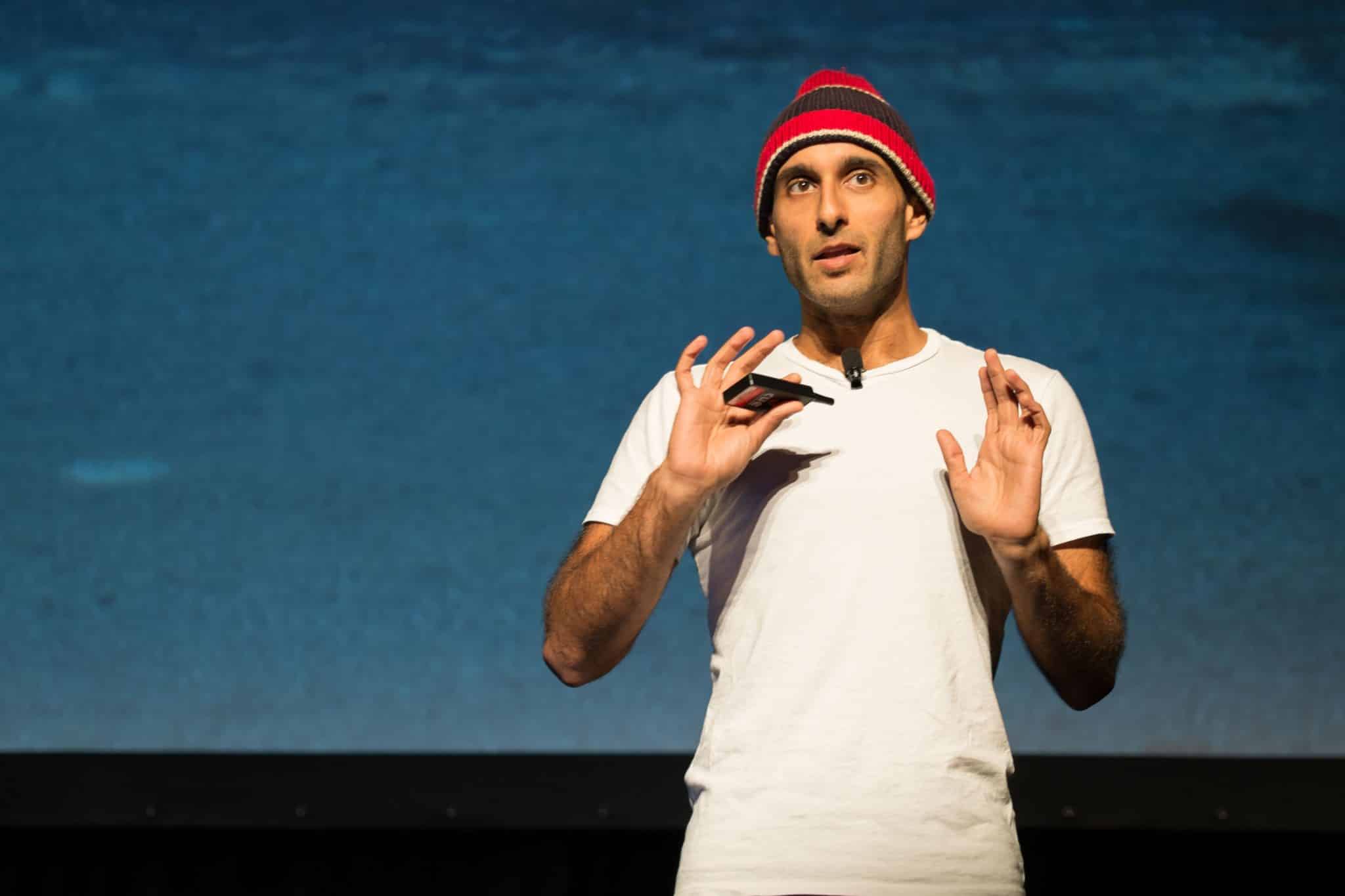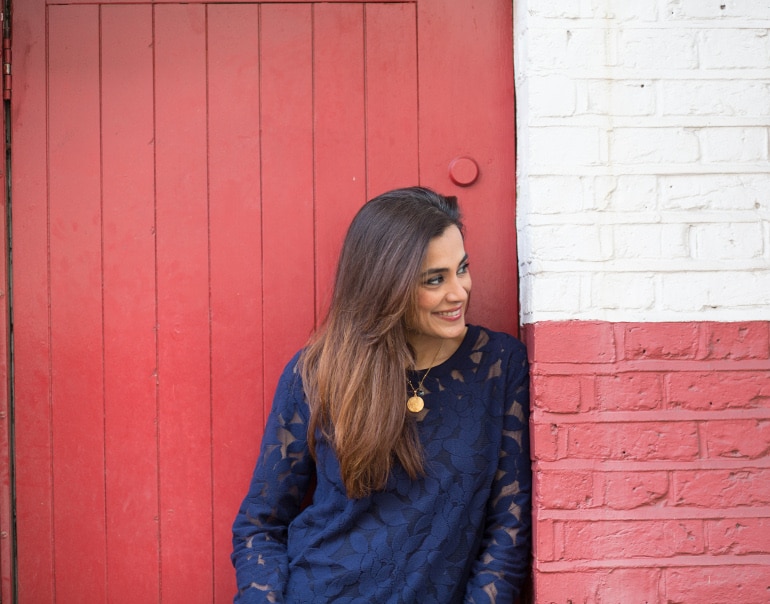Brooks Sterritt – Preserve Your Focus

An author and academic knows that even the most motivated are susceptible to distraction
Here at Freedom, we frequently find ourselves inspired by the people who use our product.
From Academy Award-nominated screenwriters, bestselling authors, editors, and journalists, to developers, illustrators, designers, academics, and entrepreneurs – the Freedom community is packed with curious, creative, and passionate go-getters.
We love to share your stories because we believe the best way to solve the problems we face at work in today’s world is to learn from those who are living those experiences daily– and thriving while they do so!
Meet Brooks Sterritt
Brooks Sterritt is the author of The History of America in My Lifetime. An assistant professor of English at the University of Houston-Victoria, he has written for The Nation, The New Republic, The Believer, Subtropics, and other publications.
His research and teaching interests center on American literature, history and theory of the novel, creative writing, and film. The History of America in My Lifetime is his first novel and centers around a shredding facility employee who becomes obsessed with finding the director of a mysterious film and satirizes our modern data-driven society and surveillance systems.
We sat down with Brooks to discuss some of the themes behind the novel and learn more about his work process.
What inspired you to become a writer and how did you arrive at where you are today?
I’m not sure I remember being inspired, exactly, but writing was something I always seemed to find myself doing. Most children tend to make art or engage in creative activities, given materials and a little encouragement, so in that sense, you could say I was imitating the books that were lying around the house. It’s just habit at this point, and the difficult part to navigate is the period after childhood when school and employment start to ramp up.
How do you stay motivated and focused on a daily basis?
The motivation part isn’t really an issue. Like many writers, I want to write, want to have written, and in fact feel guilty or even unwell if I don’t make at least a little progress in a given day. It then becomes a matter of not getting sucked into minutiae and then realizing it’s time to sleep.
On a daily basis, I try to preserve focus in various ways, depending on the task: setting a timer and taking frequent breaks, enabling do not disturb on my phone (99% of notifications are always off), using Freedom to block apps or websites on mobile, desktop, or both, and even putting my phone in the closet.
You are also an assistant professor! What advice would you give someone who is considering whether or not to write a Ph.D.?
Talk to people in your field and take a hard look at the data, especially when it comes to employment.
If you try to finish everything before sitting down to write, the writing gets endlessly deferred.
You recently published your first novel. What adjustments did you make to your work process or daily routine in order to fit the writing around your day job?
I started the novel while working in a museum, using the golf pencils we handed out to visitors so they wouldn’t endanger the art with ink pens. I had to stop writing on the clock when the museum became concerned that note-taking might distract employees from catching vandalism in progress. Phones were forbidden in the galleries for this reason.
I also used to write at night in a very unstructured way, but now that I’m teaching I get a chunk of writing done in the mornings before anything else, and again in the afternoon if possible. If you try to finish everything before sitting down to write, the writing gets endlessly deferred.
When did you realize that your relationship with technology was taking a toll on your productivity and needed to be examined?
Probably while I was working on The History of America in My Lifetime, since a novel requires a certain amount of sustained attention. Even if you manage to show up consistently, distractions can seriously cut into your gains.
It’s like the DeLillo line that a “writer takes earnest measures to secure solitude and then finds endless ways to squander it.” Inattention predates the internet, of course, though the ways to squander our solitude are more endless than ever.

What has a healthier, more sustainable relationship with your phone allowed you to do?
I’ve found myself reading physical books again, and looking at people’s faces when we’re having dinner.
Most writers feel pressured to maintain an online presence. How do you find a balance between being connected and overwhelmed?
I wish I knew! There’s nothing pernicious about phones and apps in and of themselves, but the direct effects that social media, in particular, has on brain chemistry, and thus mood and health, is on another level.
Any balance I’ve found has come after obsessive usage to the point that social media has lost a bit of its sheen. Having said that, I’ve met some amazing people on Twitter, Instagram, etc., so one kind of balance could be using social media to arrange or attend things in physical spaces. Or deleting the apps, even if I end up caving and downloading them a few days later.
Even if you manage to show up consistently, distractions can seriously cut into your gains…
The ways to squander our solitude are more endless than ever.
Your novel satirizes the Big-Tech dominated, data-driven, surveillance society in which we are living. What troubles you most about the way technology is being used today? Do you think there is a way we can fix it?
There’s a growing body of research linking smartphone overuse or dependency to anxiety and depression, so it’s particularly troubling how this gets amplified when you’re exposed from birth, essentially. Fixing it on a personal level is a question of habit formation, measuring the time you spend on your phone, gradually lowering it to acceptable levels, and examining what is triggering you to pick it up in the first place.
Based on the number of articles and books on the topic, it seems that people are already reevaluating and limiting their own screen time and that of their kids. This works for the individual user, but fixing it systemically will probably take some kind of legislation, which could unfold on the model of Big Tobacco or in some completely surprising way.

What would you recommend as a first step for someone who wants to improve their relationship with technology and be more creative?
I’ll qualify my answer by adding that the internet can be incredibly stimulating in terms of creativity, and some people do great work with a million tabs open, never getting sucked into watching other people’s lives.
A logical first step, however, is to find out what your online habits actually are. A number of apps and extensions, including the built-in Screen Time for iOS, will show you a breakdown of apps used (or sites visited), minutes spent on each, and will track this over time with varying levels of granularity.
What do you do outside of your work routine that helps you stay productive?
Sleep and meditation–occasionally both at the same time.
What projects are you currently working on that you are most excited about?
I’m currently at work on a novel about political violence.

For more on Brooks and his work, visit his website and follow him on Twitter and Instagram.



